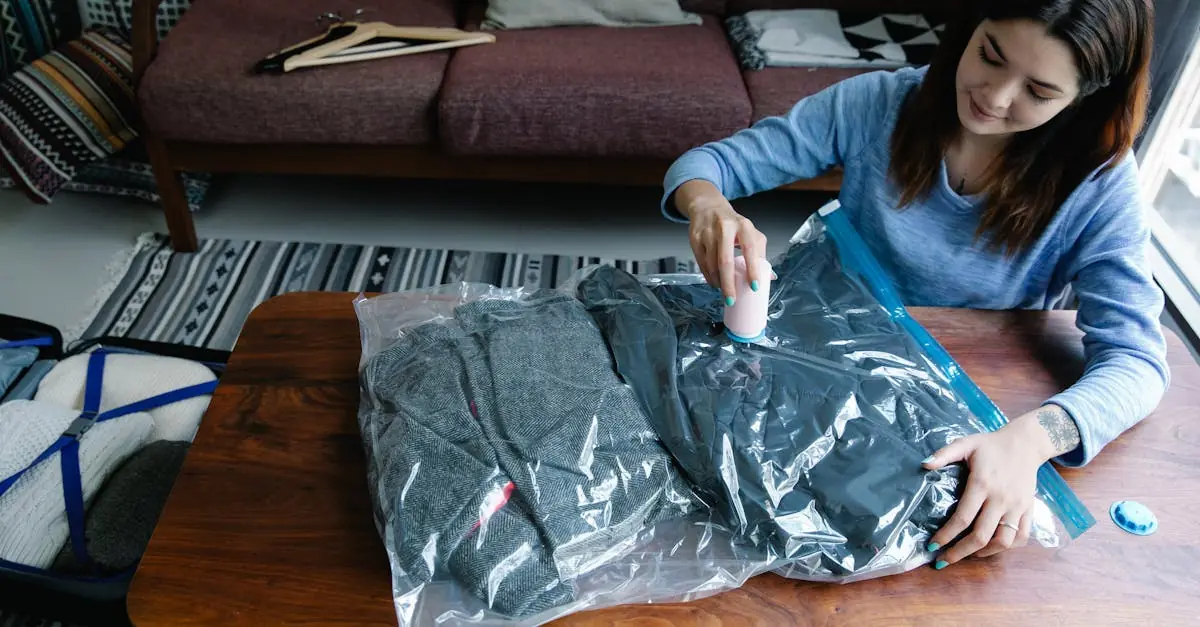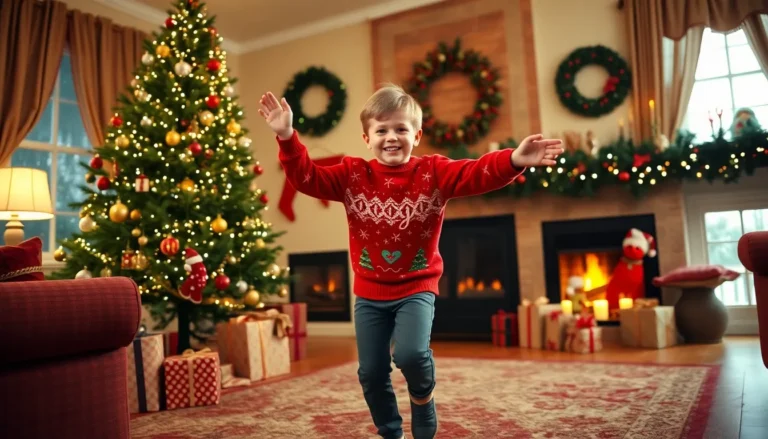Table of Contents
ToggleIn a world where clutter seems to multiply faster than rabbits, it’s time to take a stand. Whether it’s that mountain of mismatched socks or a collection of takeout menus that could rival a phone book, decluttering isn’t just a chore—it’s a lifestyle choice. Imagine a home where every item sparks joy instead of anxiety. Sounds dreamy, right?
Understanding Decluttering
Decluttering involves the process of organizing and removing unnecessary items from personal spaces. It contributes to a lifestyle choice that creates a more peaceful and efficient environment.
What Is Decluttering?
Decluttering is the intentional act of sorting and removing excess items that no longer serve a purpose. It focuses on keeping only those items that add value or joy to daily life. This practice involves evaluating personal belongings and making mindful decisions about what to keep, donate, or discard. In essence, decluttering goes beyond mere tidying up; it’s about fostering a space that reflects one’s values and needs.
Benefits of Decluttering
Decluttering provides several significant advantages. An organized space enhances productivity and reduces stress levels. Studies indicate that individuals in clutter-free environments experience improved focus and creativity. Furthermore, maintaining a minimalistic approach leads to easier cleaning and upkeep. A decluttered home can inspire a sense of tranquility and promote a positive mindset. Overall, embracing decluttering cultivates an enjoyable living experience, making everyday activities more efficient and fulfilling.
Effective Decluttering Tips
Decluttering effectively requires thoughtful strategies and consistent effort. Exploring various techniques can lead to a more organized living space.
Start Small
Starting small can yield significant results. Focus on one drawer or a single shelf to avoid feeling overwhelmed. Completing small tasks builds momentum and provides a sense of accomplishment. Setting a timer for 15 minutes encourages concentrated effort. Achieving manageable goals contributes to the overall decluttering process and fosters motivation.
Create a Decluttering Schedule
Creating a decluttering schedule makes the process more structured. Designating specific days for certain areas ensures consistent progress. Allocating time each week for tackling different rooms fosters routine and commitment. Prioritizing spaces that create the most stress enhances immediate satisfaction. Following a clear timeline keeps decluttering on track, leading to a clutter-free environment over time.
Use the Four-Box Method
Using the Four-Box Method simplifies decision-making. Label boxes as “Keep,” “Donate,” “Trash,” and “Relocate.” This system helps sort items based on their future purpose. Evaluating each item leads to clearer insights on what to retain or discard. Making decisions based on this method streamlines the decluttering process and focuses on maintaining a curated collection of belongings.
Maintaining a Clutter-Free Space
Maintaining a clutter-free space involves developing consistent routines and habits that support organization. Implementing daily practices plays a crucial role.
Establishing Daily Habits
Creating a daily routine around decluttering keeps spaces tidy. Individuals can set aside ten minutes each day for quick tidying sessions. Making the bed immediately after rising provides a simple yet effective start. Putting items back in designated places after use prevents accumulation. Designating a specific spot for incoming items reduces clutter build-up. These small but consistent actions minimize the need for extensive decluttering sessions.
Regularly Reviewing Your Belongings
Conducting regular reviews of belongings promotes a clutter-free environment. Setting a reminder each month can encourage individuals to reassess their items. Identifying items that are no longer useful or needed fosters a mindset of intentionality. Donating or recycling these items prevents overcrowding. Keeping a designated area for potential donations helps streamline decisions. This practice not only maintains organization but also reflects personal priorities and values in the living space.
Embracing decluttering as a lifestyle choice transforms not just living spaces but overall well-being. By prioritizing items that bring joy and value individuals can create an environment that fosters peace and productivity. The journey begins with small, manageable steps and structured routines that keep clutter at bay.
Regularly reassessing belongings ensures a clutter-free home reflects personal values and priorities. This ongoing commitment not only enhances focus and creativity but also cultivates a more fulfilling everyday life. With the right mindset and practical strategies decluttering becomes a rewarding practice that leads to lasting positive change.





